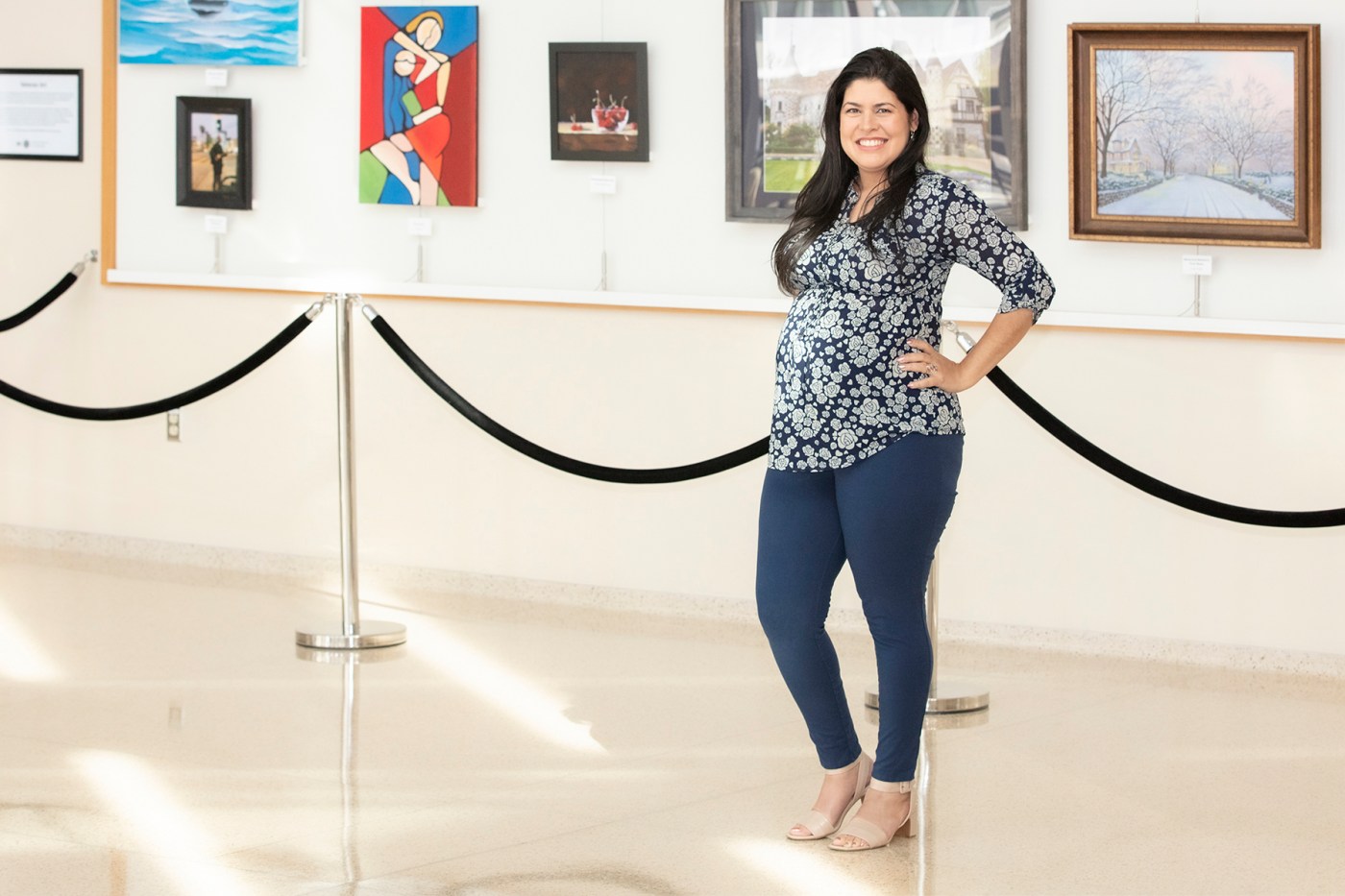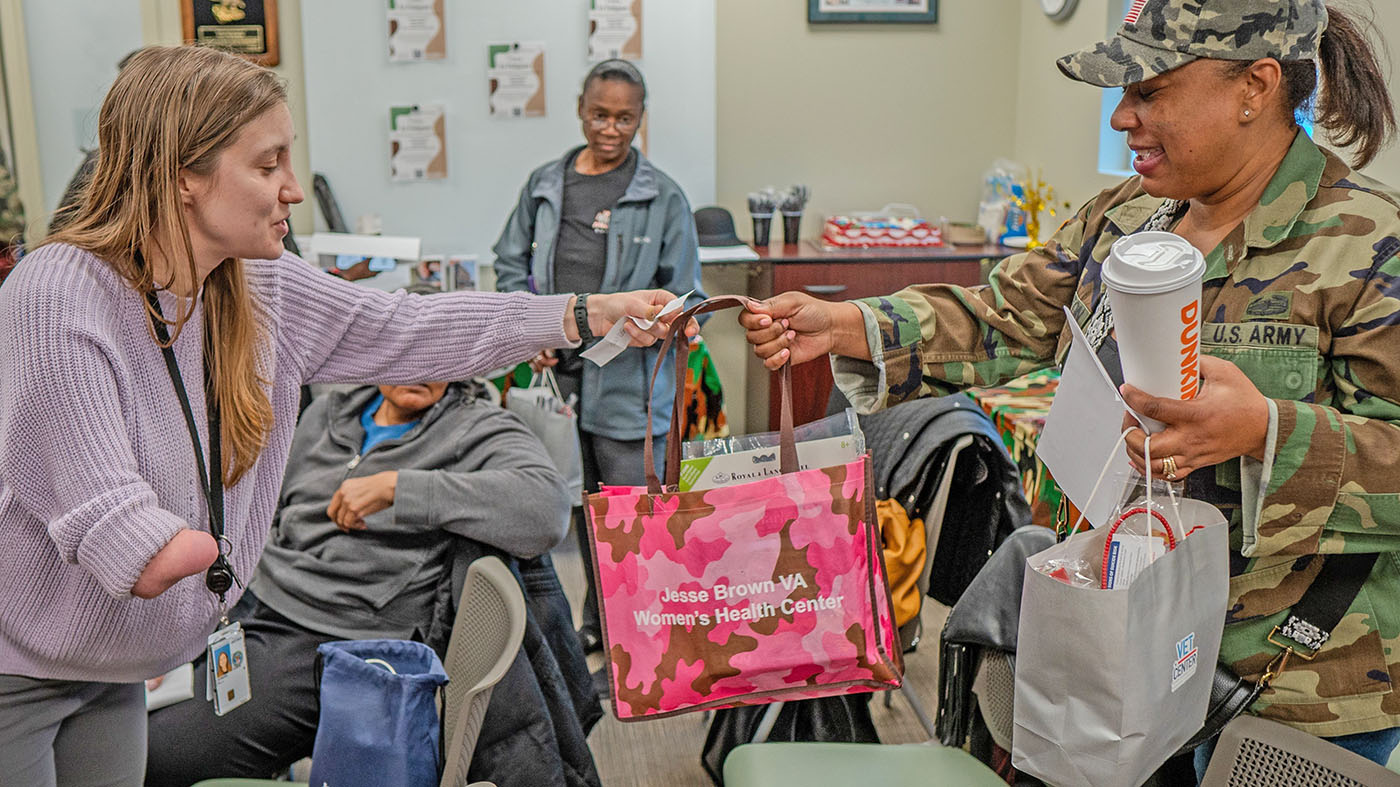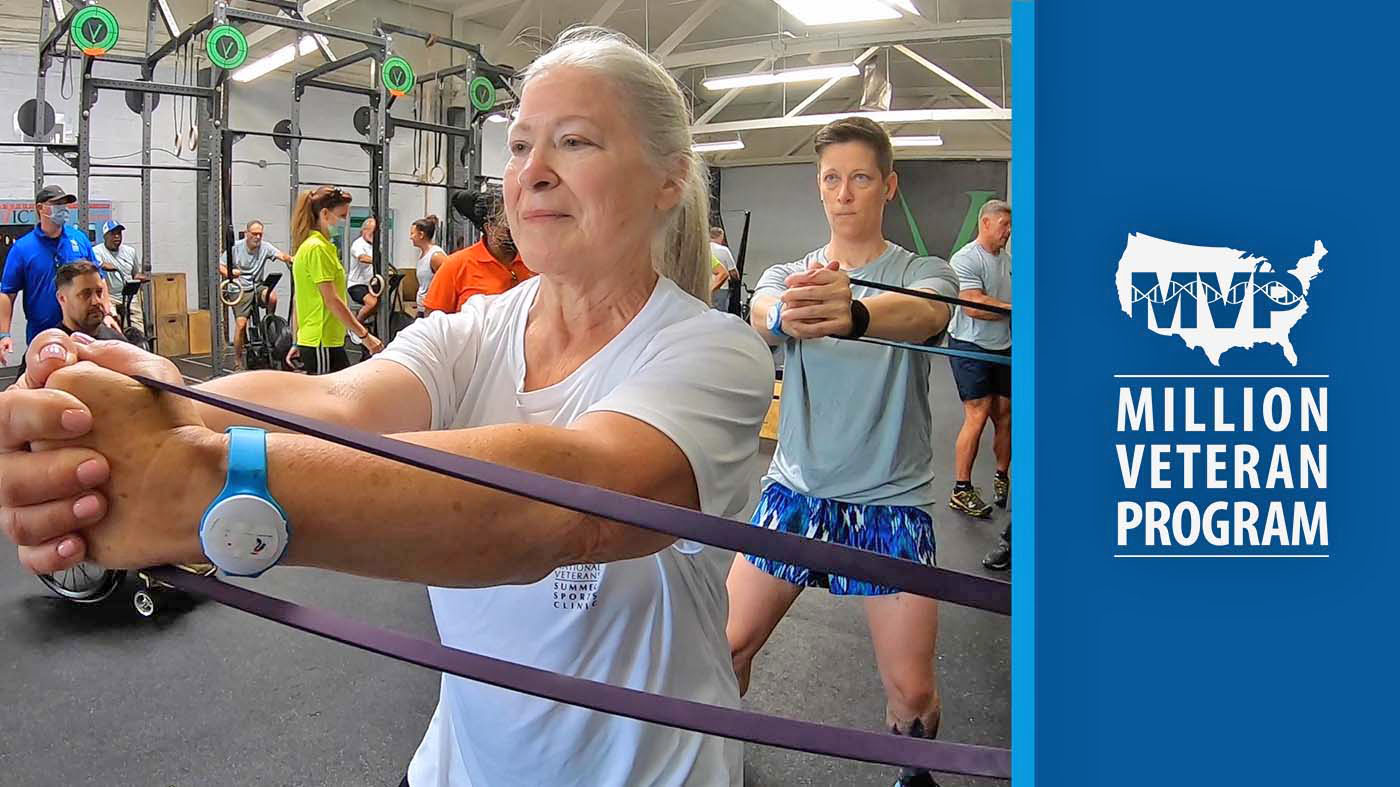When Army Veteran Zuleima Torres Cruz went to VA for a routine appointment in March, she found out she would soon become a mother—to her surprise!
But after quickly learning that VA Eastern Colorado Health Care System (ECHCS) is home to a comprehensive Women Veterans Health Care Program, she knew she’d be in supportive hands.
Choosing VA
Today at eight-months pregnant, Torres Cruz reflected on why she chose VA maternity services for the birth of her first child. “Since I’ve been a patient at the VA for nine years, they already have a record of my medical history,” Torres Cruz said. “And now at this point in my life of becoming a mother, VA provides care that integrates with my needs.”
Integration is at the heart of VA’s Women Veterans Health Care Program. It’s designed to ensure timely, continuous care throughout different stages in a Veteran’s life by offering primary care, OB/GYN services and mental health care. VA can also provide mammography, cancer screening, Military Sexual Trauma (MST) care and counseling. Pregnancy prevention and planning services are also offered.
For Veterans who become pregnant, VA provides prenatal care up to 12 weeks, and community prenatal care until delivery. Additional benefits include lactation education, supplies, product consultation and support groups.
Throughout their pregnancy, Veterans work directly with an assigned maternal care coordinator who helps expectant mothers navigate their health care needs both within and outside of VA. Over the course of a woman’s pregnancy, this relationship continues to grow through monthly check-ins. Two weeks after the baby is born, the new mothers meet with their OB/GYN provider for a postpartum assessment.
Compared to the general population, women Veterans face a higher risk for depression. That is why “it’s really important we do a postpartum depression screening,” explained Women Veterans Program Manager Carole Donsbach. “The general women population is already prone to depression after giving birth.”
According to a study published in the Journal of Women’s Health (Dec. 2010), “Veterans with a pregnancy were twice as likely to have a diagnosis of depression, anxiety, post-traumatic stress disorder (PTSD), bipolar disorder, or schizophrenia as those without a pregnancy.” Additionally, women Veterans are at a higher risk of experiencing post-traumatic stress disorder (PTSD) compared to male Veterans (Military Medicine, Jan. 2014 ).
Anything an expectant mother may need
Fortunately, the Women Veterans Health Care Program serves as a central resource for anything an expectant mother may need. At ECHCS, Donsbach and Maternal Care Coordinator Rashawnda Franklin both said they want to help alleviate expectant mothers’ stress and to provide a seamless process while preparing for a child. “It adds a human component to health services,” Donsbach explained. VA wants to ensure women Veterans receive timely evaluation and are connected to services promptly, she added.
“I’m dedicated to making sure all of women Veterans’ needs are met and am honored to serve them as they have served us,” Franklin said about working with the 177 expectant mothers currently enrolled in the program. “We build confidence. We connect and trust each other.”
Women Veterans make up 11.9 percent of all Veterans enrolled in ECHCS. This percentage equals more than 15,000 women. And 11,770 of those women are going to VA for primary care—a jump of 16% from fiscal year 2018 to 2019. Also in FY 2019, the number of expectant women Veterans enrolled with ECHCS grew by 6%. That number’s expected to keep climbing as women are the fastest-growing subgroup of Veterans in the country, according to VA.
As she anticipates the arrival of her baby, Torres Cruz encourages her fellow women Veterans to seek out VA care—no matter what they are going through. “Someone needs to let them know they can rely on the VA. When they think the VA can’t do anything for them, it can.”
Terri Rorke is an Army Veteran and public affairs specialist at the VA Eastern Colorado Health Care System
Topics in this story
More Stories
Navy Veteran and president of the American Medical Association got a colonoscopy and encourages other Veterans to do the same.
Chicago Vet Center and VA gave women Veterans information on VA services available to them.
MVP’s research informs personalized care for Veterans, supporting whole health and beyond.






